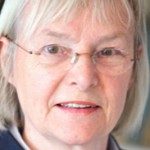Link to Pubmed [PMID] – 26424495
Semin. Cell Dev. Biol. 2015 Aug;44:115-25
Like other subclasses within the PAX transcription factor family, PAX3 and PAX7 play important roles in the emergence of a number of different tissues during development. PAX3 regulates neural crest and, together with its orthologue PAX7, is also expressed in parts of the central nervous system. In this chapter we will focus on their role in skeletal muscle. Both factors are key regulators of myogenesis where Pax3 plays a major role during early skeletal muscle formation in the embryo while Pax7 predominates during post-natal growth and muscle regeneration in the adult. We review the expression and functions of these factors in the myogenic context. We also discuss mechanistic aspects of PAX3/7 function and modulation of their activity by interaction with other proteins, as well as the post-transcriptional and transcriptional regulation of their expression.
